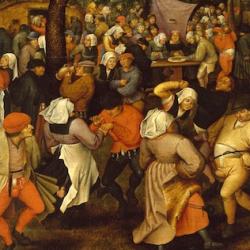I listened to a torturous discussion last week in which Terry Gross and Northwestern’s Laura Kipnis discussed Kipnis’s Chronicle of Higher Education article challenging university prohibitions of romance between faculty members and students.
What’s the big deal? Kipnis wanted to know. In her day, sex with professors was a normal part of college experience. Sure, it went wrong sometimes, but that’s life. Rules against relationships infantalize students and presume that professors are predators on the prowl.
Gross gamely, lamely, tried to present a moral argument against professorial sex with students. Having long jettisoned the notion that sex between unmarried people might itself be immoral, her arguments lacked what moral philosophers call “oomph.” She fell back on the one remaining moral category: abuse of power. Young students naturally do what their elders tell them (do they?), Gross claimed, and professors are taking advantage of them when they seduce them.
It’s an impossible standard, of course. Kipnis pointed out that the power of professors is limited. We’re not talking about rape or assault or anything like that. Just good clean professor-with-coed sex.
It’s an especially impossible standard today, now that theory has taught us that all relationships are infused with power. Where does coercion begin and end? What counts as violence? Almost anything can; but then it’s also true that almost nothing can.
So there we have it, the basic moral claim of our time: Do whatever you desire, but do it in a way that does not exercise power over another. But this is quickly followed by a second dictum: All relationships are power-relationships. Don’t exercise power; yet all actions are power-exercises.
Is it any wonder we’re confused?















